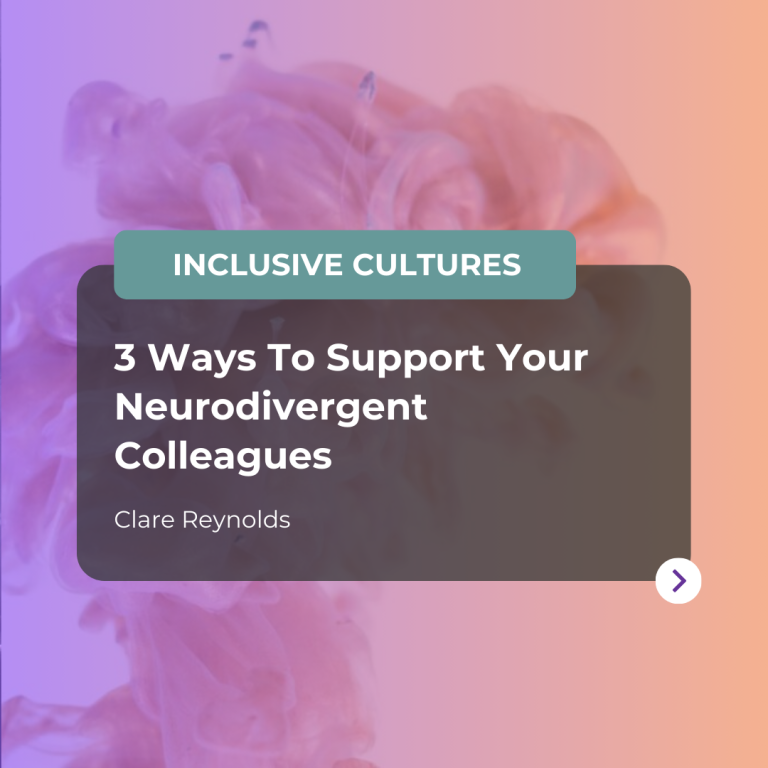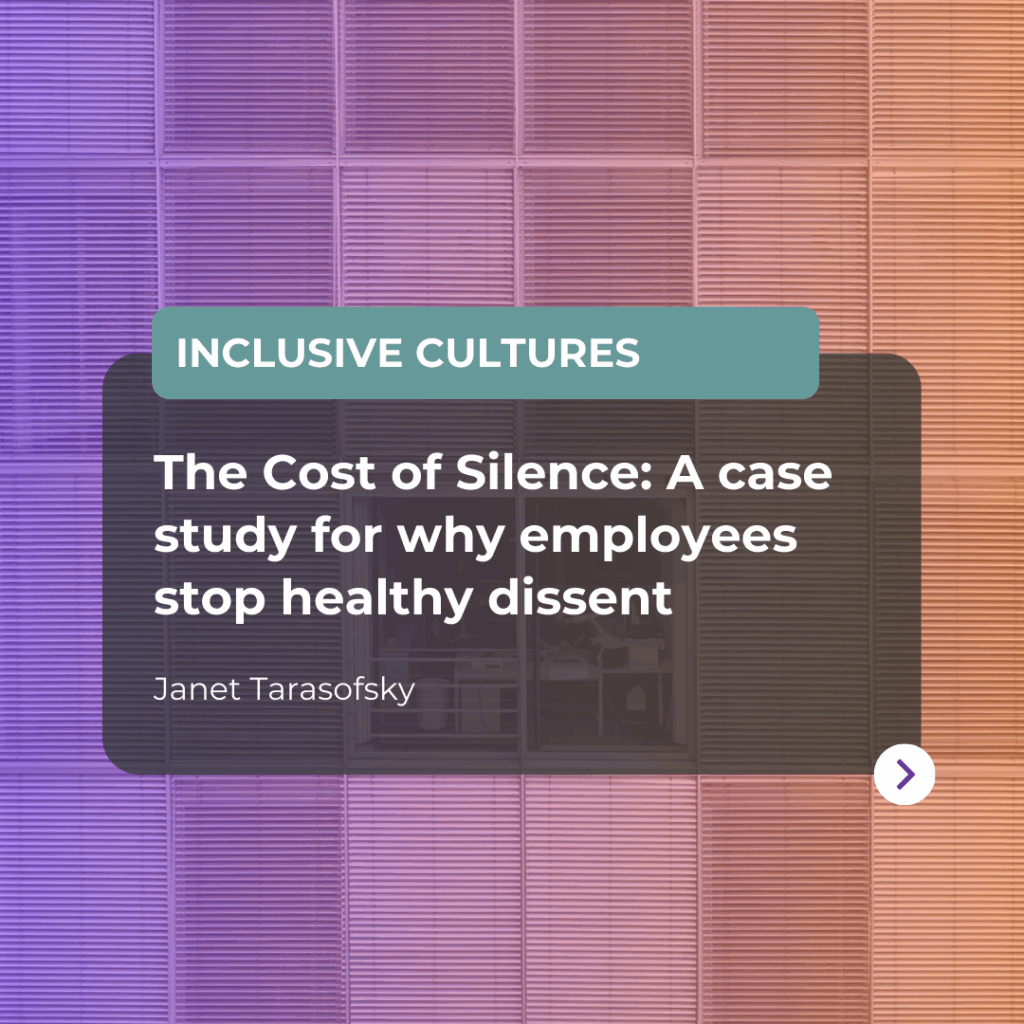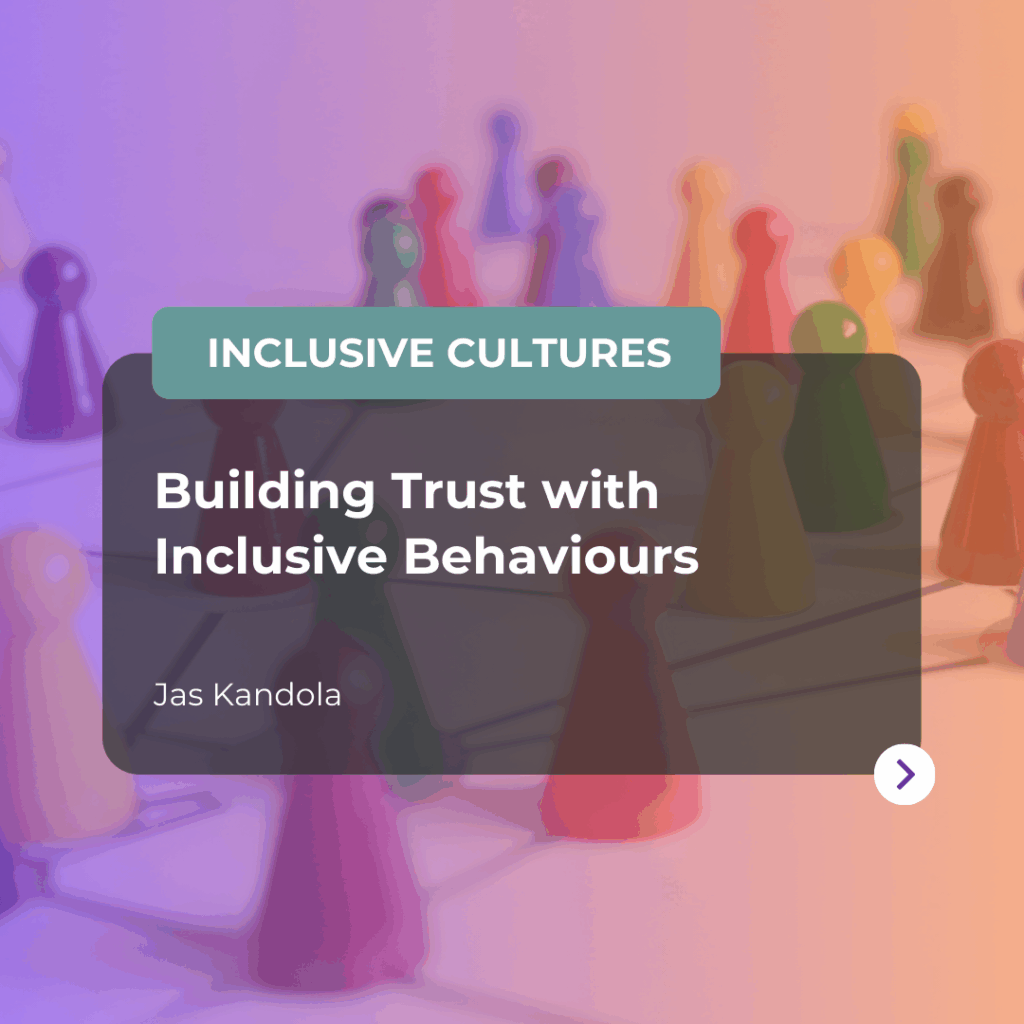Neurodiversity Celebration Week is a great opportunity to celebrate neurodiversity in the workplace. But it’s also an important chance to consider how we can support our neurodivergent colleagues more.
Around 15% and 20% of the population is neurodivergent, and unfortunately high proportion of neurodivergent people are unemployed. For example, just 21.7% of autistic people in the UK are in employment. (Office of National Statistics.) And for those who are in the workforce, in our work at Pearn Kandola we often hear from neurodivergent people that they don’t feel properly supported at work.
This needs to change, not only so that our neurodivergent colleagues feel valued, but so that organisations can enjoy the huge benefits of having neurodiverse teams.
So how can you help your neuro-divergent colleagues? Here are 3 very simple ways.
- Allow time for desaturation
A phenomenon known as the cocktail party effect explains how, like a partygoer focussing on a single conversation in a noisy room, the brain filters out other stimuli in order to focus on just one. Without even realising, we separate stimuli into different streams and decide which are most relevant for us to process. Neurodivergent people tend to filter out fewer of these sounds. They, therefore, take in far more auditory information, which can lead to their brains being overloaded and over-saturated much more quickly than neurotypical people. It means open-plan offices can be incredibly distracting and can have a huge impact on concentration levels, as well as mental well-being.
To combat oversaturation, leaders need to prioritise offering an alternative place to work – ideally a desk in a quiet room. They should also actively encourage employees to leave their screens and take regular breaks. Spending time outside can be particularly beneficial – even five minutes outside can help to desaturate the brain. This of course applies to all of us, whether or not we are neurodivergent!
- Don’t overburden with verbal instructions
Neurodivergent people often struggle with their working memory, meaning they can have real difficulty when briefed on a task verbally. A dyslexic person, for instance, will find it harder to keep verbal instructions in their head long enough to process the information and act on it.
With that in mind, leaders should look for other ways to deliver instructions. More often than not, this doesn’t require a drastic change in the way things are done. From writing the main points down to sending a short summary email, simple alternatives can make a real difference.
If you’re struggling to know what the right approach would be, ask the employee what they would prefer, rather than taking a one-size-fits-all approach.
- Create psychological safety
In our own research at Pearn Kandola, we found that employees with a disability were 6.1 times more likely to receive their Reasonable Adjustments if they disclosed their condition to their team. However, we also found that as many 39% of people hadn’t disclosed their condition. People told us they were worried that disclosing their condition would lead to a range of negative consequences at work.
For neurodivergent colleagues to be properly supported, and for a team to truly feel the benefits of neurodiversity, leaders need to establish a culture of psychological safety, where everyone is valued, and where people feel free to be themselves.
To foster psychological safety, leaders should consider how regularly they praise and recognise the skills that team members are contributing. They should make efforts to connect with everybody, rather than just a select few. And they should also consider how they themselves respond to constructive feedback. Creating a psychologically safe environment will mean employees feel more comfortable with disclosing their needs.
Our neurodivergent colleagues have so much to offer. Diversity of thought is crucial to the success of any business, and yet often this part of the workforce is overlooked and unsupported. Very simple changes can have a huge impact. But there’s still so much more work to be done before neuro-divergent employees can feel truly supported in our workplaces.
For more support and insight on how to support your neurodivergent colleagues, contact info@pearnkandola.com






